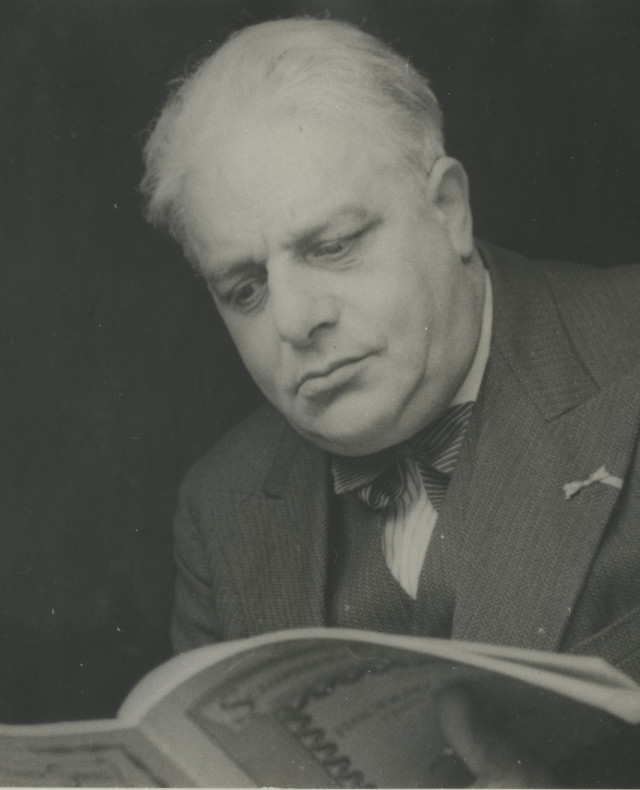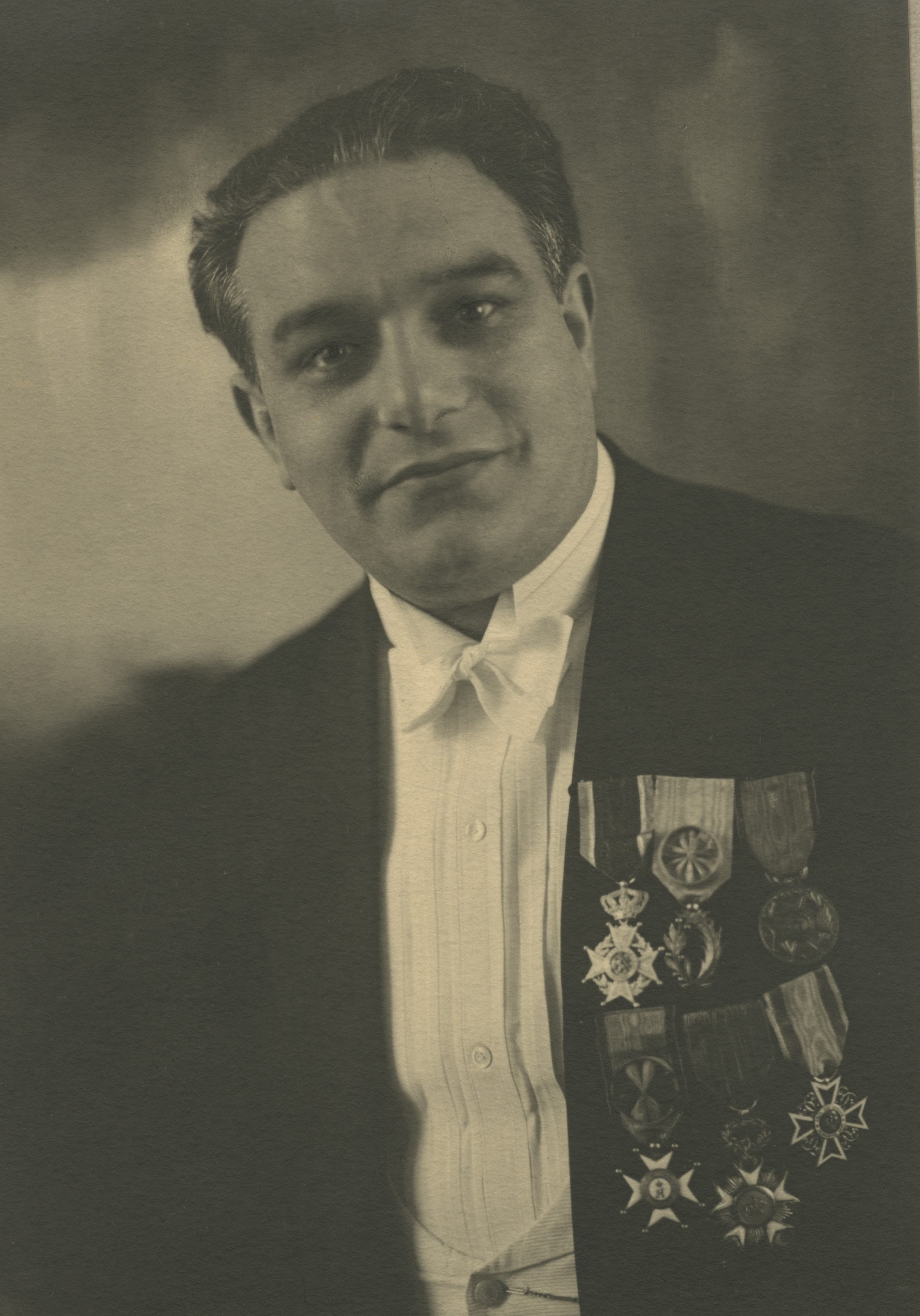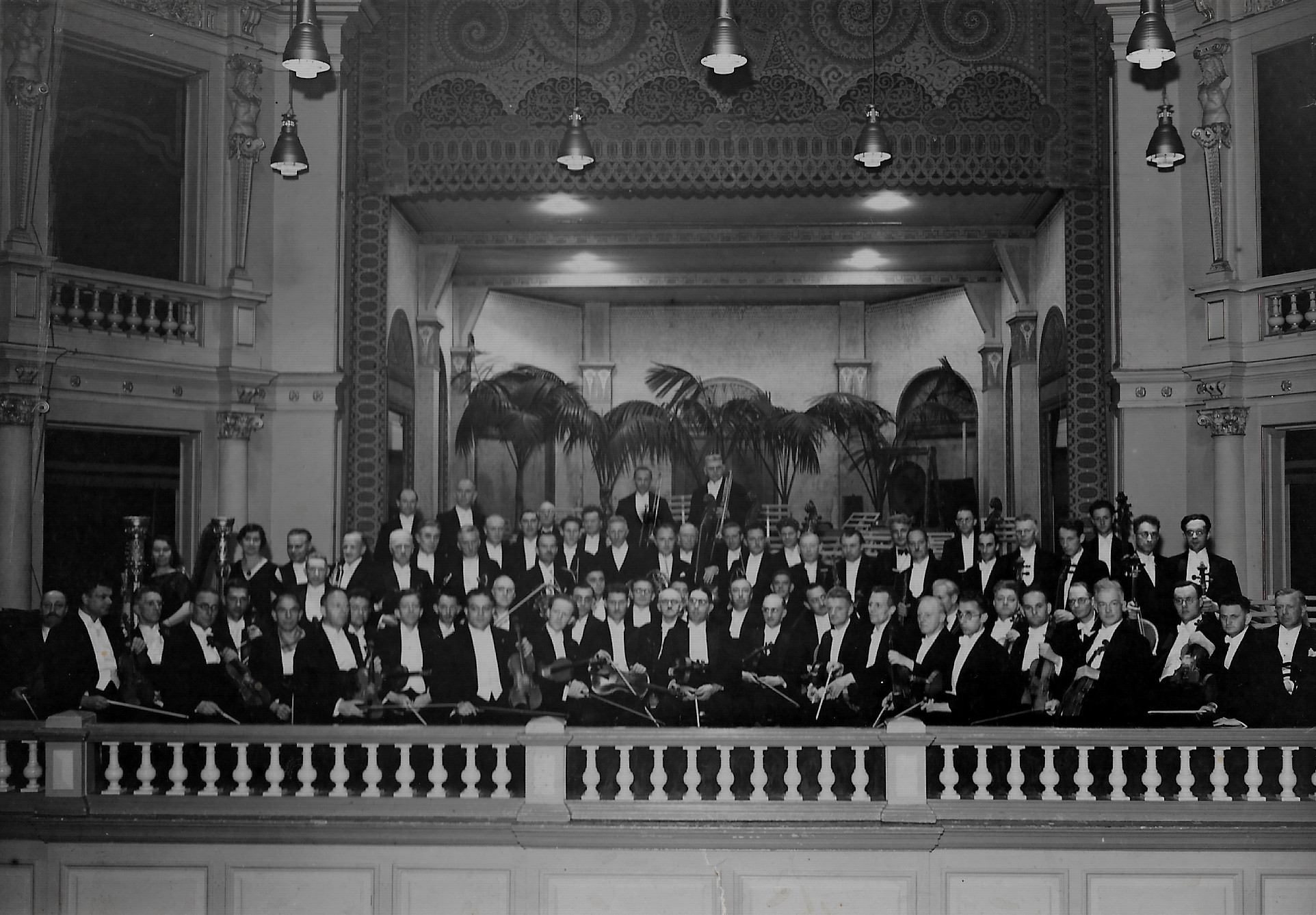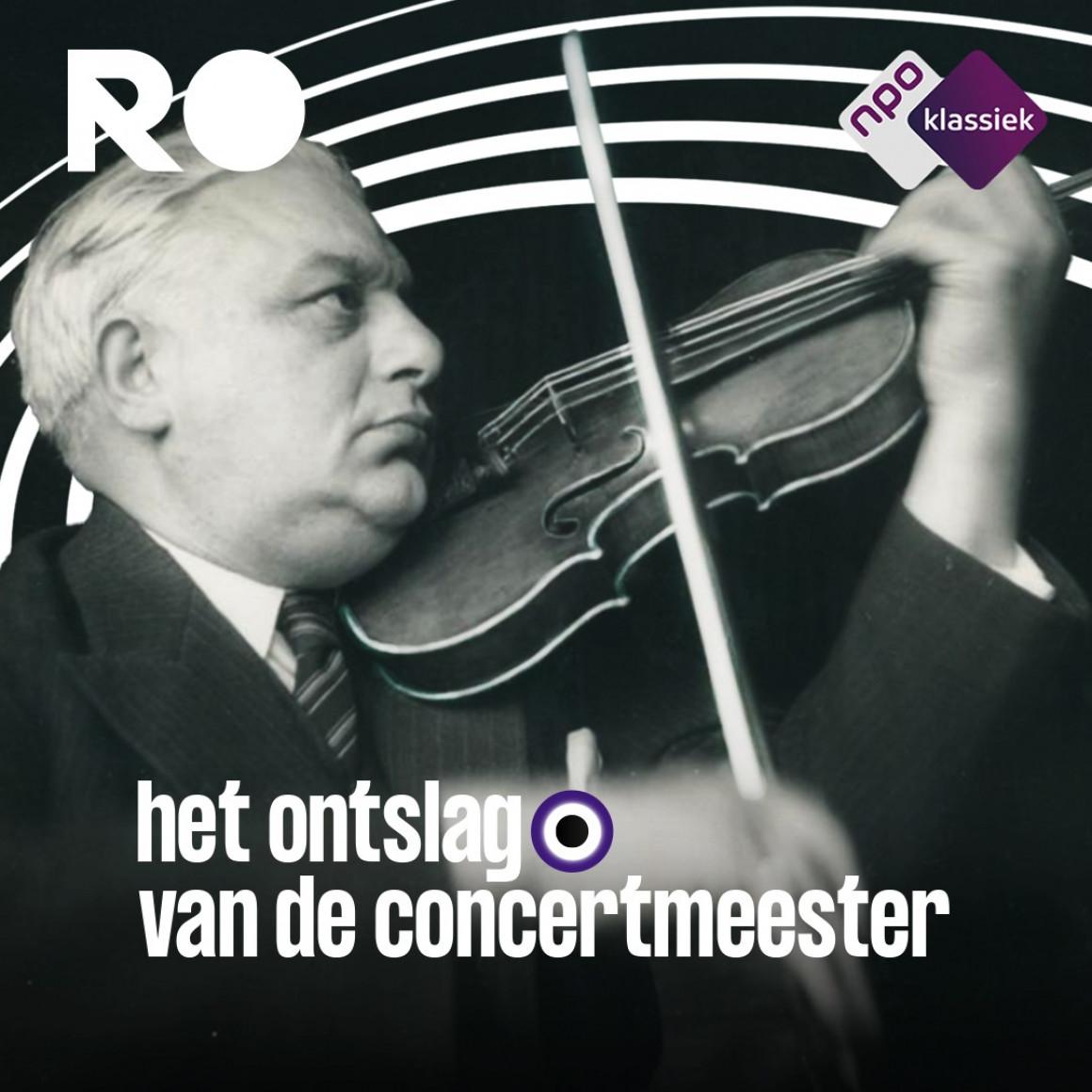In cooperation with KRO-NCRV & NPO classical
New podcast on fired Jewish musicians from the Residentie Orkest

Het ontslag van de concertmeester: a podcast diptych about Sam Swaap, the concertmaster of the Residentie Orkest who was dismissed by order of the Nazis in 1941, can now be heard in the podcast series Muziek tot Leven from KRO-NCRV and NPO klassiek. The podcast was commissioned by the Residentie Orkest and created by presenter Lex Bohlmeijer.
The Jewish musicians of the Residentie Orkest in The Hague faced tragic and complex circumstances during World War II. Before the war, Jewish musicians were very active within the orchestra, but after the German occupation in May 1940, they were increasingly excluded from public musical life. In April 1941, Jewish musicians were prohibited from performing in orchestras and music academies, which eventually led to their dismissal from the Residentie Orkest. Five musicians and three staff members never returned. A black page in the history of the orchestra that remained underexposed for many years.
Violinist Sam Swaap
Sam Swaap (1888-1971) was an exceptionally talented musician who began his career with the Concertgebouw Orchestra and Philharmonic Orchestra of Turku (Finland). He was appointed violinist/second concertmaster with the Residentie Orkest in 1914 and was first concertmaster from 1917. Swaap worked under such conductors and composers as Gustav Mahler, Richard Strauss, Maurice Ravel and Arturo Toscanini. He was also a well-known and renowned chamber musician, and in 1918, together with colleagues from the Residentie Orkest (violinist Adolphe Pot, violist Jean Devert and cellist Charles van Isterdael), founded The Hague String Quartet, which concertized throughout Europe.
World War II
Because he was Jewish, Sam Swaap was expelled from the orchestra in mid-May 1941 by order of the Nazis along with other Jewish colleagues. He was still part of the Jewish Symphony Orchestra for some time after that. Swaap was imprisoned in Huize De Biezen for six months beginning in December 1942, around May 1943 he was deported to Camp Westerbork and in September 1944 to Theresienstadt. He survived the concentration camps and picked up with his own orchestra in the fall of 1945. Missing there were eight colleagues who had perished in the war, murdered in Auschwitz and Sobibor.
.jpg/b2f3eff14ea529de20bf7911fc78644b.jpg)
Podcast - The resignation of the concertmaster
In the first part of the two-part podcast, Lex Bohlmeijer outlines Swaap's pre-war career as a musician. The second part zooms in further on the war years and the difficult period afterward. The podcast also examines the historical context of the dismissal. It turns out that there are records of bwaard in the personal archive of Sam Swaap housed at the Netherlands Music Institute. It also addresses the question of whether the symphony orchestras were in fact collaborating, by playing throughout the war without their Jewish musicians. And then there is a painting showing Swaap with the other members of the internationally famous Haagsche String Quartet.
-door-gerard-vrint.jpg/9fb0637e70d0f65fccbe71409401ac5a.jpg)


"In the dark times of the war, the Residentie Orkest played on, without its Jewish colleagues. A fact that gives chills. Sam Swaap fortunately returned after the war but the other Jewish colleagues who were also deported were killed. We also want to give them a name. It is high time to look back, find out and take responsibility for a history that has not yet been fully told. This podcast is part of that."
- Sven Arne Tepl, general and artistic director Residentie Orkest
Music to life - stories of musicians during the war
The podcast is part of the series Music alive - stories of musicians during the war by KRO-NCRV/NPO klassiek about Dutch composers and musicians who were persecuted and sometimes murdered in World War II. Speaking in Sam Swaap - The Dismissal of the Concertmaster are Pauline Micheels, author of Music in the Shadow of the Third Reich, Philomeen Lelieveldt, curator at the Hague Municipal Archives for the collections of the Netherlands Music Institute, Sven Arne Tepl, general and artistic director of the Residentie Orkest, and Jan Leuiken, chairman of Stichting tot Behoud van de Joodse Begraafplaats in Wassenaar.
Further research
The podcast was commissioned by the Residentie Orkest and was made possible thanks to the Friends of the Residentie Orkest Association and the Residentie Orkest Fund. Sam Swaap - The Resignation of the Concertmaster is a preliminary exploration of the functioning of the Residentie Orkest during World War II. The orchestra has asked Dr. Philomeen Lelieveldt to conduct further research into the orchestra's role during this period.
Photo credit
Photos of Sam Swaap were made available by the Hague Municipal Archives, Netherlands Music Institute collection.
The photograph of Sam Swaap used in the podcast is from the Jewish Museum Collection.
The photograph of Maurice Ravel with some musicians of the Residentie Orkest is from the Hague Municipal Archives, Residentie Orkest Collection.
Important sources for the podcast were the archival collections of the Residentie Orkest and Sam Swaap (bnr. 3169-01, Collections Nederlands Muziek Instituut) in the Hague Municipal Archives.
With thanks to
NPO Klassiek / KRO|NCRV / Vereniging Vrienden van het Residentie Orkest / Fonds RO
Lex Bohlmeijer / Renée Jopp / Philomeen Lelieveldt / Jan Leuiken / Kunsthandel Simonis & Buunk / Sven Arne Tepl / Simon Vandenbroecke / Jorieke de Vet / Jan Jaap Zwitser
The podcast "The Resignation of the Concertmaster" is now available to listen to on various platforms.

